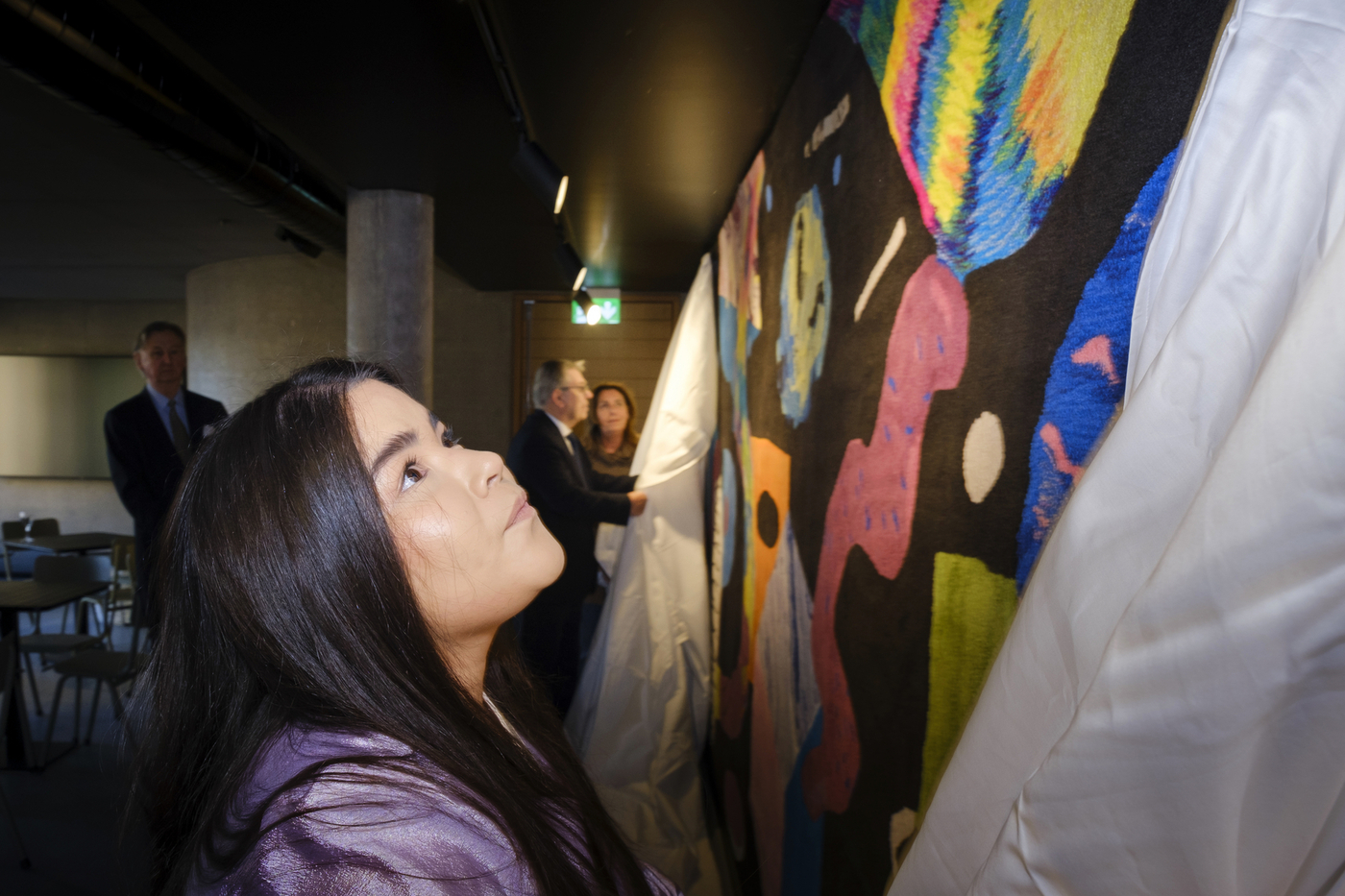Jón Atli Benediktsson, Rector of the University of Iceland, sent the following message to University staff and students today (15 October 2021):
"Dear students and colleagues,
Public trust is not something that universities can take for granted, but for years the University of Iceland has been ranked as one of the most trusted institutions in the country. The same is true of the University's international reputation. Equality is not just one of the University's core values, but one of the key foundations of the Icelandic nation's trust in UI. Equality is a key focus of the new Strategy of the University, because without equality the University cannot achieve a leadership role in knowledge creation for Icelandic society.
Yesterday, the University of Iceland received the Equality Scales award, which is only presented to organisations who have achieved a gender balance at the highest level of administration. This recognition is truly gratifying and marks an important milestone in our mission to enhance equality in all areas of UI operations. Equality and diversity are cornerstones of the University and indeed of a sustainable society. It was Eliza Reid who announced that UI had been included in a group of almost 40 companies, 7 municipalities and 7 public institutions to receive the coveted award this year. The Association of Women Business Leaders is behind the Equality Scales awards.
Yesterday marked the formal opening of the extension to Gamli Garður, the oldest student hall of residence run by Icelandic Student Services, at the heart of the University campus. Gamli Garður is one of the oldest buildings in the University's history and has played a part in the experiences of a huge number of UI students, from 1934 to the present day.
At the ceremony yesterday, Isabel Alejandra Díaz, President of the UI Student Council, unveiled a work of art dedicated to a century of student activism alongside Björn Bjarnason, who was President of the Student Council when Icelandic Student Services were founded in 1968. This new housing represents further expansion of the services available to UI students. The building was designed with particular attention to social aspects, with an emphasis on a diverse range of common areas. The architecture is in harmony with the original building and is an attractive addition to the central campus. A sign with the University logo will shortly be erected at the corner of the building, next to Hringbraut, to indicate that this is one of the main routes onto campus.
By making a good University better, we will enhance the quality of our work in a broad sense. A new survey among third-year students at UI shows that 83% are happy or very happy with their programme at the University, which is an increase compared to the last survey. This is a particularly cheering result in light of the challenges that students and staff have faced due to the COVID-19 pandemic over the last two years. The results will also spur us on to perform even better.
Over a hundred people from UI are now participating in the annual Arctic Circle Assembly, which will be taking place in Harpa up to 17 October. This number includes 80 students from diverse national backgrounds who have attended a special course at UI related to the conference. The goal of the Arctic Circle Assembly is to support dialogue about the future and development of Arctic regions. It is believed that the importance of Arctic regions will increase over the next decades, not least due to climate change. This fits in particularly well with the new UI Strategy, which places significant emphasis on the importance of climate science and climate action.
Today is the annual Menntakvika conference organised by the School of Education, which will bring together a large number of professionals and stakeholders from the education sector. This year there will be 280 lectures in 76 seminars, covering most topics within the pedagogical and educational sciences Menntakvika is open to all and will take place online this year.
A few years ago, the UI School of Humanities and the Icelandic National Broadcasting Service came together to find the most beautiful word in the Icelandic language. Almost 9,000 people voted and the final winner was the word 'ljósmóðir', meaning 'midwife'. It is no wonder the word 'ljósmóðir' is dear to the Icelandic nation. Midwifery is a vital profession and education and research in this field is key to improving public health. It is now a quarter of a century since the University began offering study programmes in midwifery, which is a milestone that deserves recognition.
The book Aldarsaga Háskóli Íslands (A Century of the University of Iceland), which was published to mark the centenary of the University, explains how Bjarni Pálsson, Director of Health, hired the Danish midwife Margrethe Katarine Magnússen to provide clinical training and began offering a course for midwives in 1761. The course could be completed in just one month. Today, qualified midwives must have studied for almost two decades in total. And the fruits of this drive to raise standards in midwifery have been significant. Infant mortality in Iceland has fallen from one of the highest rates in Europe to one of the lowest in the entire world. I am delighted to announce that at the last meeting of the University Council, held in the Parliament building to commemorate 110 years since the start of teaching at UI, it was unanimously agreed that the name of the Faculty of Nursing would be changed to the Faculty of Nursing and Midwifery.
Dear students and colleagues. We must continue to do what we can to prevent infection in order to defend the progress we have made.
Have a good weekend.
Jón Atli Benediktsson, Rector"




